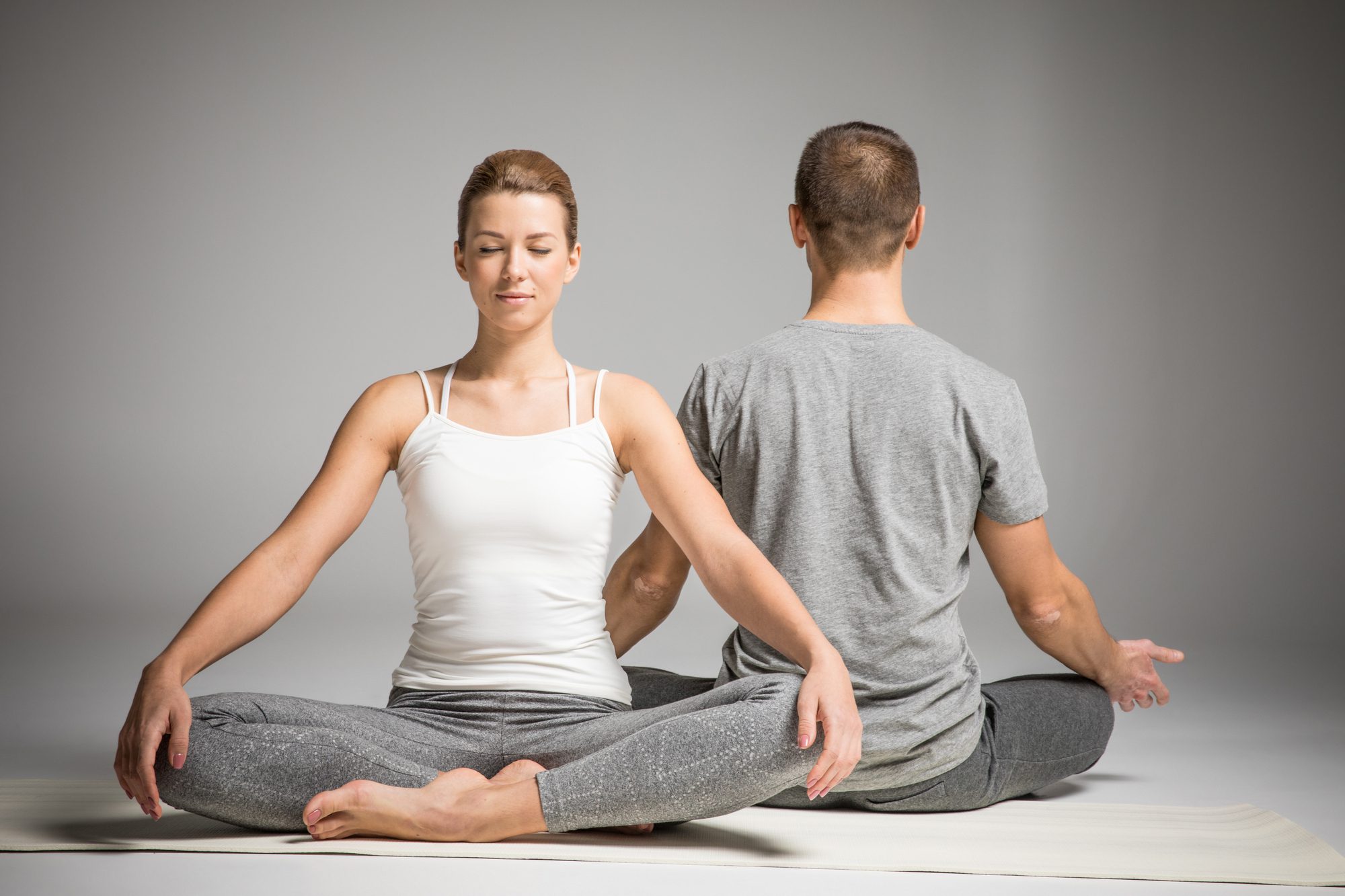The idea of mindful wellness is gaining traction in todays society as an important part of having a life that is both healthy and enjoyable.
It entails having an awareness of both our physical being and our mental state, as well as engaging in various mindfulness practices in order to maintain this awareness.Sounds confusing but stay with me!
Making aware decisions that are helpful for our physical, mental, emotional, and spiritual health is an the crux of mindful wellness, which enables us to realize our full potential in terms of health and well-being.
When we give ourselves the opportunity to be attentive towards our thoughts and feelings, we are able to improve the choices we make regarding how we lead our lives.
Meditation and other forms of self-care practices like yoga can also assist us in being rooted in the here and now and in touch with our inner selves.
The cultivation of inner calm via mindful wellness practices paves the way for a life rich in joy and happiness for anyone willing to practice it.
What is Mindful Wellness?

Mindful wellness is a holistic approach to achieving optimal physical, mental, and spiritual health.
It involves taking proactive steps to improve our overall well-being by making healthy lifestyle choices such as exercising regularly, eating nutritious food, getting enough sleep, and managing stress.
It also involves engaging in activities that bring us joy and satisfaction such as spending time with loved ones or pursuing hobbies.
By focusing on mindful wellness, we can create a more balanced and fulfilling life.
How To Achieve Optimal Health And Well-Being
Mindfulness is a skill that can be learned. It's not an innate talent, but it can be developed through consistent practice. The more you practice mindfulness, the better you'll get at it, and the more likely it will become part of your life.
I have personally been practicing mindfulness for a few years now, and although I am a lot more aware and my life is completely different to the way it used to be, I still have a long way to go which serves as a daily reminder to myself that life is a journey, and not a destination.
Mindfulness can help people become healthier and improve well-being by helping them live more healthfully: avoiding unhealthy behaviors such as smoking and eating too much junk food; learning how to deal with stress and anxiety; finding ways to stay calm in difficult situations (e.g., when someone gets angry with us); improving their ability at self-reflection so they are less judgmental towards themselves or others around them.
Below I've listed a few things that you can use to cultivate a more mindful lifestyle that will hopefully help get you started on your own mindfulness journey or improve your practice.
Practice mindfulness
Mindfulness is all about paying attention to your thoughts, feelings, and sensations without any judgment, helping you to reduce stress and anxiety while improving your sleep quality and overall well-being. It's an incredible tool to have in your mental wellness arsenal.
Now, if your new you might be wondering how to actually practice mindfulness. Well, there are a few ways you can do it!
Cultivating Awareness
The first and simplest way is to just be more aware, this involves being aware of your thoughts, feelings and behavior and when your mind wonders and you fall back into the madness of life, simply bring yourself back to that aware state - easier said than done, I know! but with practice and continued effort, doing this is a very powerful way of becoming more mindful.
Mindfulness Meditation
One popular method of becoming more mindful is through meditation. This involves sitting in a comfortable position, closing your eyes, and focusing on your breath. Whenever your mind wanders, gently bring it back to your breath without any self-criticism. You can start with just a few minutes a day and work your way up to longer sessions.
Breathing Excercises
Another way to practice mindfulness is through deep breathing exercises. These can be done anywhere and at any time, making them a great option for when you're feeling stressed or overwhelmed. Simply take a few deep breaths, focusing on the sensation of the air moving in and out of your body.
Take a Few Moments
Finally, you can practice mindfulness by simply taking a few moments to pause and tune into your surroundings. This can be as simple as taking a mindful walk outside, paying attention to the sights, sounds, and smells around you. Or, it could be taking a few minutes to really savor your morning cup of coffee, noticing the aroma, taste, and warmth.
6 Tips For Optimal Health

Mindfulness Can Support Emotional Regulation
Mindfulness can support emotional regulation, emotional balance, and mental wellness. The practice of mindfulness involves paying attention to the present moment without judgment or reactivity to experience. It has been shown to benefit both physical and mental health by helping you manage your emotional need better.
You would be surprised by what practicing focused awareness for just 10 minutes a day can do to help us manage our emotions in a healthy way. Now you never have to spiral out of control or become overwhelmed by them again.
Mindfulness helps promote greater self-awareness about what triggers certain feelings as well as being able to recognize when they're happening so we can respond appropriately instead of becoming overwhelmed with anger or sadness over something that may not have anything at all to do with us (like being stuck in traffic).
It also promotes healthier relationships with others because it gives us tools on how best to approach difficult conversations when necessary!
This includes how much time should be spent talking vs listening carefully before jumping into action based solely off intuition alone rather than a logic first approach which generally leads back up against walls faster than intended due to rapid thinking process.
Mindfulness Can Be Cultivated Through Meditation Practice
Meditation is a form of mindfulness, which can be cultivated through meditation practice.
The process of meditation involves focusing attention on an external object or internal focus, both of which increase your ability to be present at the moment and allow you to live with less stress.
This mindful state has been shown to help promote better physical health and mental well-being, as well as improve our ability to handle difficult situations.
There are many ways that you can practice meditation: sitting still with your eyes closed (mindfulness), walking slowly without thinking about what needs doing next (focus), and repeating phrases over and over again (mantra).
You might also want to engage in other activities like yoga or tai chi while meditating so that they serve as support for your practice!
Mindfulness Helps You Live Healthier
Mindfulness is a state of awareness, a practice that helps you live more healthfully. It’s also a skill you can learn and practice in many ways.
Mindfulness is not something that happens to you—it’s something you do. By practicing mindfulness, you can increase your ability to be aware of what is happening around you and within yourself (including thoughts).
When there is more awareness about what goes on in our lives, we are less likely to make decisions based on mindless habits or emotions instead of thinking things through logically before making choices or decisions about how we spend our time or money
Mindfulness And Meditation

Mindfulness is a state of being present at the moment. It’s about being aware of your surroundings, without judgment or expectation.
Mindfulness can be practiced by sitting quietly, breathing deeply, and focusing on your body sensations — such as feeling the tension in your shoulders, or sensations on the tip of your nose — for 15 minutes a day for two weeks. This will help you become more aware of how you feel when things are going well, or when they aren't so good!
It's also important to practice mindfulness outside of meditation classes if possible: walking around at work; eating lunch at home (or even just taking a break); taking breaks throughout the day... Just try anything that helps bring awareness back into what goes on around you while working on other tasks like paying bills or driving somewhere important!
Mindfulness Is Key To Achieving Optimal Health And Well-Being
Mindfulness is a skill that can be learned, practiced, and improved upon. It’s a practice of attention to what you are doing right now, in the present moment.
It’s not just an exercise that involves sitting on a cushion or chair with your eyes closed and doing nothing but breathing slowly through your nose or mouth.
Instead, mindfulness has been shown to help people achieve optimal health and well-being by improving their quality of life, reducing stress levels, and helping them live longer lives.
There are many ways you can practice mindfulness: meditation; yoga; Tai Chi Chuan; Qigong etc. If someone like myself who has a history of being distracted and unable to focus can practice these techniques daily then it will be easy for you!
Conclusion
Mindfulness is a powerful tool that can help you achieve optimal health and well-being. You don't have to be a Buddhist monk or live in a monastery to practice mindfulness.
There are many benefits of mindfulness, including better emotional regulation, feeling more aligned with your sense of self, reduced stress levels, and improved overall mental wellness.
The most important part about practicing mindfulness is finding what works best for you—whether it's meditation or yoga or another form of mindful living that allows you to live in the moment without distractions from external factors like work obligations or social relationships.
Let me know how you got started on your mindful journey in the comment section below!

